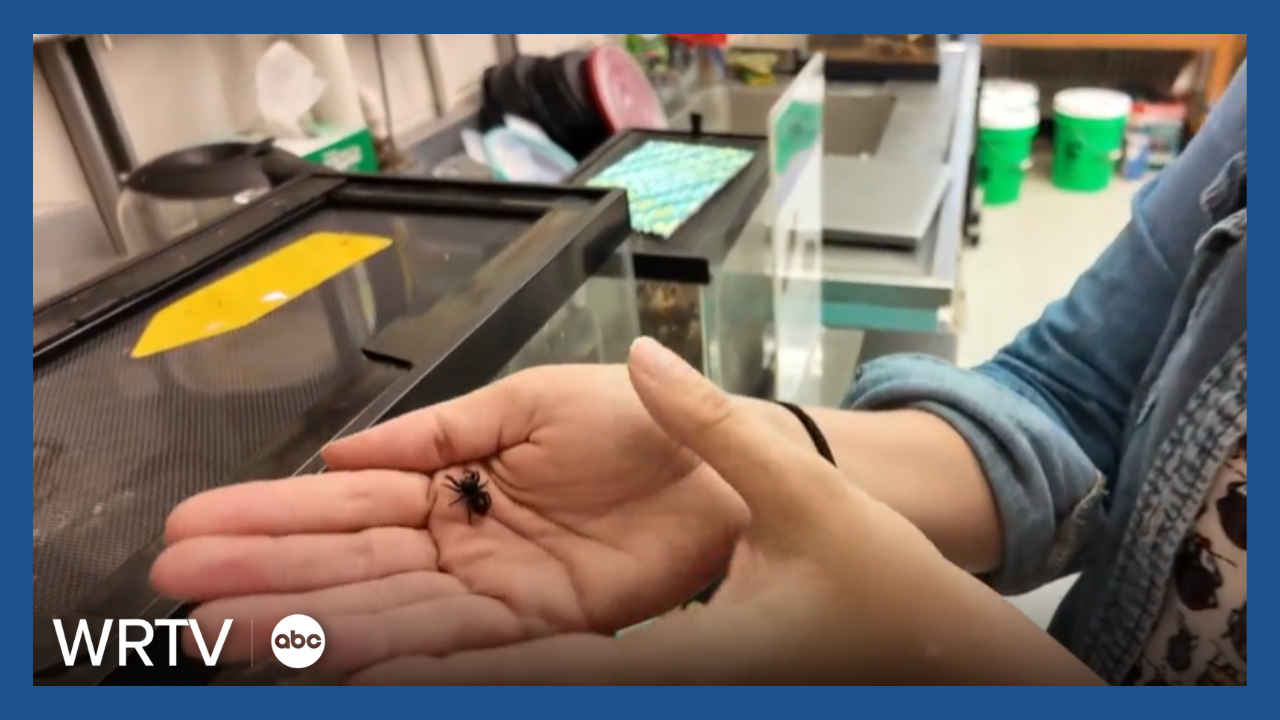While it's fun to see spider-themed decorations during spooky season, it may not be quite as fun for homeowners to find actual spiders inside their house.
With temperatures finally cooling, more spiders (and other insects) may be finding their way indoors.

"They like to find a place to hide, to stay warm, and survive winter," explained Dr. Emily Justus.
Dr. Justus works in Purdue's Entomology Department. She showed me several of the arachnids in Purdue's Bug Barn.

"We have a jumping spider," Dr. Justus showed off, while trying to keep the spider from jumping too far from her sight. "They have these really big eyes that are super adorable."
Dr. Justus has wanted to be an entomologist since she was in elementary school, so it makes sense that she is comfortable around the spiders.

For others, that isn't the case.
Josh Berter works for Terminix. He showed me some ways that you can spider-proof your house.
The first step?
"If you do come across them, the biggest thing is not to panic," instructed Berter. "They're probably more afraid of you than you are of them."
"There are about 400 species in the state, and only two of them might cause a problem," Dr. Justus shared.
The two poisonous spiders in Indiana are the brown recluse and the black widow.
To keep spiders out of your house, you have to first identify how they're entering your home.
A common place is around your HVAC lines, or behind other utility boxes on your home's exterior.

"Nice big gaping hole back there where the line comes through the house," Berter showed off a hole in the wall behind the HVAC line in his home. "That's a highway for them to come right through."

This is a simple fix, according to Berter.
"Use a silicone or a caulk sealant just around that hole, and that's going to keep them from being able to come through," Berter explained. "Another good option would be spray foam."
There are lots of things to seal: windows, doors, garage doors, to name a few.

Berter also showed a slide-on seal to use under doors.

"Just pop the door open, and it slides right under," Berter shared.
This will help prevent spiders from coming indoors.

Another tip? Watch for spider webs.
"If you eliminate how they catch their food source, then they're not going to survive," said Berter.
Berter demonstrated using a long brush to brush the outside of the house. He recommends brushing the house to knock down webs about once per month.

Inside your house, spiders will congregate in wet areas, like laundry rooms and sinks.
Berter said if spiders start to emerge in areas you use more frequently, like a living room or bedroom, or if spiders are still emerging despite your prevention efforts, it may be time to call an expert for additional treatment.
However, if you don't mind a few spiders at home...
"You can remove them, or you can just let them be, because they are not going to try to harm you," reminded Dr. Justus. "Insect populations seem to be on the decline, so that is something we're concerned about."





